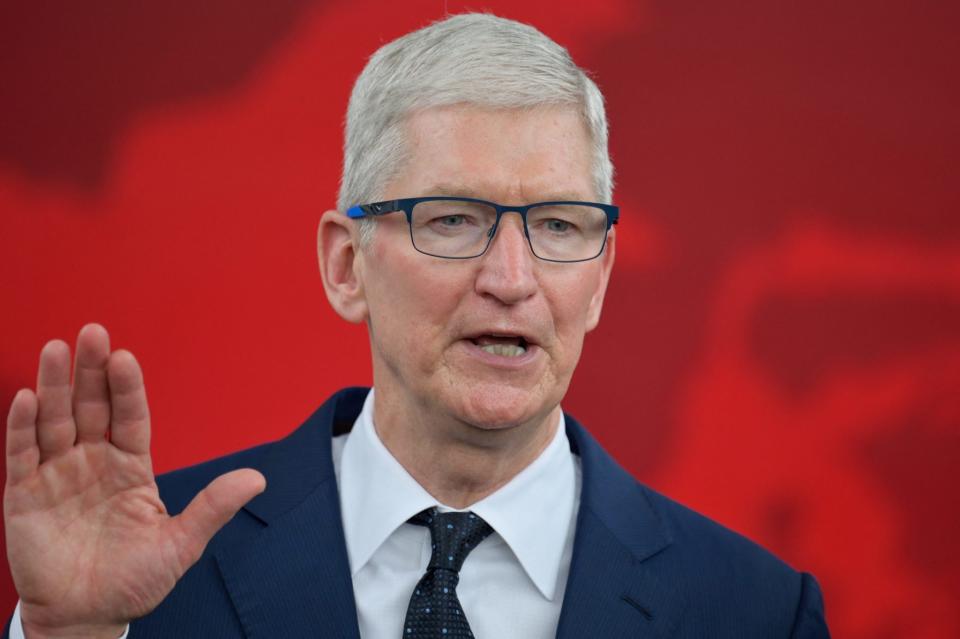OpenAI’s leap forward in human-like AI assistants underscores Apple’s growing peril

Sam Altman promised ahead of OpenAI’s big announcement yesterday that the company would be revealing something that “feels like magic to me.” While I can’t speak for Altman in terms of what he perceives as magical, the new GPT-4o model certainly is impressive.
I’ll leave it to my AI-specialist colleagues to analyze what’s going on under the hood, but for the general public, GPT-4o seems set to be the first model that really comes across like a human in out-loud conversation. The persona OpenAI showed off in its demos was perhaps cloyingly over-familiar—creepy, even—but it’s a darn good simulacrum of a person, partly because it can handle text, vision, and audio all at once and at speed.
This is where virtual assistants get real—or at least realistic enough to start being justifiably lumped in with the likes of Samantha, the assistant voiced by Scarlett Johansson in Spike Jonze’s 2013 film Her. Altman himself made the comparison in an X post after the announcement. Sure, Samantha may have [SPOILER ALERT] abandoned the film’s lovelorn protagonist at the end of that story, but who cares? This is about the technical achievement, right?
Only it isn’t. We have now crossed into the territory of potential seduction, and I don’t mean that in a romantic sense. A realistic text conversation with an AI is impressive and in some cases useful, but a realistic voice, paired with the ability to perceive the user’s appearance and environment, is something else. This is technology that will be able to convincingly influence and cajole the user, and its arrival means we will have to pay very close attention to the compulsions of the entity behind the voice.
As I have previously written, I would very much like to see virtual assistants that really work for us—reliable and discreet agents that can do stuff on our behalf, acting only in our interests. They would ideally be open-source, so we could verify their security and privacy promises, but they would also need to be on-device assistants that do not need the cloud to function.
Let’s see what Google announces later today at its I/O developer conference—an AI-powered mobile assistant called Pixie is rumored to be on the list—but, as things stand, the most likely company to realize the sort of assistant I’ve been dreaming of is Apple.
At next month’s WWDC developer event, Apple will be showing off its own AI advances, which according to the New York Times will include an “improved Siri [that Apple will pitch as being] more private than rival A.I. services because it will process requests on iPhones rather than remotely in data centers.”
That sounds like a lot of what I’ve been waiting for, minus the open-source part. However, it remains to be seen to what degree, and in what way, Apple will meet the moment.
Apple is behind in the AI game, to the extent that its desire to catch up reportedly played a big role in its decision to abandon its self-driving car efforts. Making Siri smarter will, given Siri’s current dumb-as-a-rock-ness, not be overly difficult. But Apple’s new assistant won’t just have to excel within the paradigm of Apple’s existing offerings—it will need to provide an impressive alternative to the latest and greatest virtual assistants, and OpenAI just set the bar very high indeed.
Now, Apple is reportedly in intense talks to have OpenAI’s technology power some of the iPhone’s incoming chatbot features. (Google’s Gemini is apparently still another option.) If these talks bear fruit, it’s as yet unclear whether we’ll be looking at Siri plus another chatbot, or a Siri that uses Apple’s on-device model to deal with certain private stuff, and an external model to handle other tasks—I’m really not sure how that would work.
But if Apple doesn’t have something truly special to show at WWDC, it runs the risk of other companies’ assistants becoming the stars of the show on iOS. And as those assistants gradually become iPhone users’ agents, interacting with online services on their behalf, the value of iOS and its ecosystem would be greatly diminished. Add to that the threat that antitrust regulators are posing to the lucrativeness of the App Store, and it’s easy to see how precarious Apple’s position has suddenly become.
More news below.
David Meyer
Want to send thoughts or suggestions to Data Sheet? Drop a line here.
This story was originally featured on Fortune.com

 雅虎香港財經
雅虎香港財經 